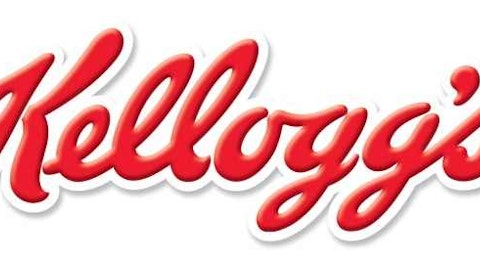Top Greek yogurt maker Chobani cracked under the sonic boom created by the U.S. Air Force banning its Blueberry Power Flip flavor because it came packaged with hemp seeds. Although that’s the only flavor that has the seeds in it, Chobani said it will henceforth remove them from its yogurt.
Air Force Times reports the hubbub started because the military wing’s drug-testing policies say “studies have shown that products made with hemp seed and hemp seed oil may contain varying levels of tetrahydrocannabinol (THC), an active ingredient of marijuana which is detectable under the Air Force Drug Testing Program. In order to ensure military readiness, the ingestion of products containing or products derived from hemp seed or hemp seed oil is prohibited.”
Chobani doubts the hemps seeds would be a problem, as the yogurt contains just 10 grams of hemp seed, which would generate less than 1 part per million of THC. Federal regulations would cause service personnel to fail a drug test if the THC reached 50 parts per billion per 100 grams. Yet to placate those fears, the yogurt maker is excising the seeds even though its own research shows THC levels below two parts per million in hulled seeds and five parts per million in hemp oil are “not likely” to trigger any drug test failures.
Greek yogurt is the fastest growing yogurt category, hitting $2 billion and commanding more than a third of the market share of all yogurt on store shelves today. A fairly meteoric rise, considering it amounted to just 1% as recently as 2007. Datamonitor says 57% of all yogurt product launches this year have been Greek-themed, with even Starbucks Corporation (NASDAQ:SBUX) teaming up with industry giant Danone SA (ADR) (OTCMKTS:DANOY) to introduce its own branded Greek yogurt.
As hot as it is, and in addition to its marijuana-related problems, Greek yogurt is still coming in for criticism from other quarters. Unlike traditional yogurt cultures, Greek yogurt is strained to remove whey, an acidic byproduct — as acidic as orange juice, apparently — which poses an environmental problem when it’s disposed of. Its explosion in popularity left manufacturers flat-footed when it came to dealing with it, and only now are they looking for how best to use the waste. Converting it into an infant formula ingredient and separating the lactose from it and converting it into methane to generate electricity are but two possibilities.
Not that it was part of the reason for its decision, but No. 2 yogurt maker General Mills, Inc. (NYSE:GIS) was able to sidestep the whey problem with its Yoplait brand by using milk protein concentrate as a thickening agent instead of straining. Unfortunately, while it created a similar, thick, creamy texture, the concentrates ran into the brick wall of federal rules that proscribe exactly what can be included to be called Greek yogurt, and concentrates are not on the list. Some questioned whether it could even be called yogurt.
And Danone SA (ADR) (OTCMKTS:DANOY) has been criticized for its inclusion of carmine as a coloring agent in its yogurts. Although it’s a natural ingredient that’s safe for human consumption, better than Red Dye No. 2, anyway, it gives people the heebie-jeebies to think they’re eating an ingredient produced from crushed female cochineal insects. It’s widely used in the food service industry, but as awareness of what exactly carmine is has grown, it’s led to petitions circulating calling for manufacturers to abandon the ingredient.
Starbucks Corporation (NASDAQ:SBUX) already caved on its Frappuccinos and smoothies, as well as its red velvet whoopie pies, but Danone SA (ADR) (OTCMKTS:DANOY) says not only is it safe, but they’re good for you too! It has no intention of abandoning the ingredient in its yogurt.
In comparison to that, Chobani only having to remove a couple of seeds from its packaging makes it seem unlikely it will be shot down from its top spot anytime soon.
The article Greek Yogurt Gets Grounded by Air Force originally appeared on Fool.com and is written by Rich Duprey.
Fool contributor Rich Duprey has no position in any stocks mentioned. The Motley Fool recommends Starbucks. The Motley Fool owns shares of Starbucks.
Copyright © 1995 – 2013 The Motley Fool, LLC. All rights reserved. The Motley Fool has a disclosure policy.




